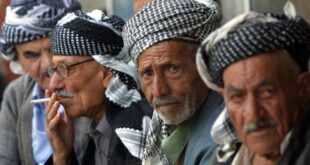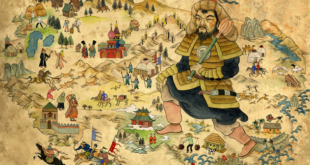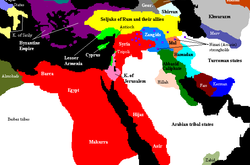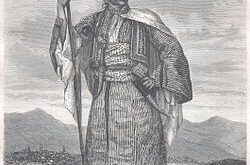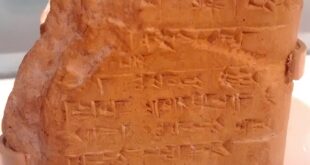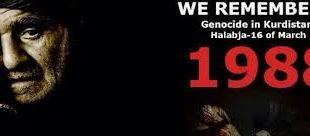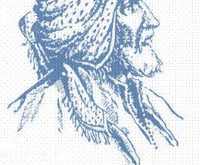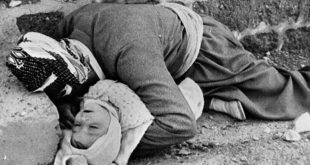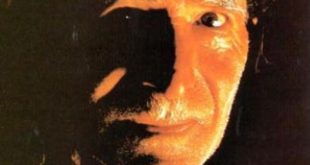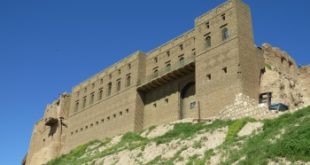Between 25 and 35 million Kurds inhabit a mountainous region straddling the borders of Turkey, Iraq, Syria, Iran and Armenia. They make up the fourth-largest ethnic group in the Middle East, but they have never obtained a permanent nation state. Where do they come from? The Kurds are one of …
Read More »Kurdish principalities after the Mongol period
After the Mongol period, Kurds established several independent states or principalities such as Ardalan, Badinan, Baban, Soran, Hakkari and Badlis. A comprehensive history of these states and their relationship with their neighbors is given in the famous textbook of Sharafnama written by Prince Sharaf al-Din Biltisi in 1597. The most prominent among these was Ardalan which was established in the early 14th century. The state …
Read More »Ayyubid dynasty
The Middle East, c. 1190. Saladin’s empire and its vassals shown in red; territory taken from the Crusader states 1187–1189 shown in pink. Light green indicates Crusader territories surviving Saladin‘s death. 0
Read More »History of the Kurds
Kurdish people, , Gelê Kurd), are an Iranian[1][2][3] ethnic group in the Middle East. They have historically inhabited the mountainous areas to the south of Lake Van and Lake Urmia, a geographical area collectively referred to as Kurdistan. Most Kurds speak Northern Kurdish (Kurmanji) or Sorani, which both belong to the Kurdish languages. There are various hypotheses as to …
Read More »Hittite language
Hittite (natively 𒉈𒅆𒇷 nešili / “the language of Neša“, or nešumnili / “the language of the people of Neša”), also known as Nesite (Nešite / Neshite, Nessite), was an Indo-European language that was spoken by the Hittites, a people of Bronze Age Anatolia who created an empire centred on Hattusa, as well as parts of the northern Levant and Upper Mesopotamia.[1] The language, now long extinct, is attested in cuneiform, in …
Read More »Remember Halabja
Remember Halabja Brian Brivati March 16 is Anfal and Halabja remembrance day – a good day to reflect on the Iraq War and why the left remains so blinded to the fate of the Kurds. On March 16 1988 Saddam Hussein ordered a series of gas attacks on the town …
Read More »Haji Qadir Koyi
Haji Qadir Koyi Haji Qadir Koyi (Kurdish: Hacî Qadirî Koyî[1]), (* 1817 Koi Sanjaq -1897), was a Kurdish poet. He carried on the nationalistic message of Ahmad Khani in his writings. He wanted to enlighten the people and help them to remedy the problems of illiteracy and backwardness and …
Read More »I’d still vote to go to war in Iraq
I’d still vote to go to war in Iraq Ann Clwyd Ifirst became aware of human rights atrocities in Iraq in the 70s, before I became a politician. I met Iraqi students in Cardiff, some of whom had been imprisoned in Basra, and what they told me was so terrible …
Read More »A MODERN HISTIRY OF THE KURDS
A MODERN HISTIRY OF THE KURDS DAVID McDOWALL A MODERN HISTIRY OF THE KURDS 0
Read More »ERBIL CITADEL
ERBIL CITADEL The Erbil Citadel is a fortified settlement on top of a 20-30 meter high tell. It has a long settlement history, dating back to at least the Chalcolithic period and gaining prominence as Arbela during the Assyrian period. The citadel is uninhabited since 2006 and undergoing reconstructions. …
Read More » History of Kurdistan
History of Kurdistan
